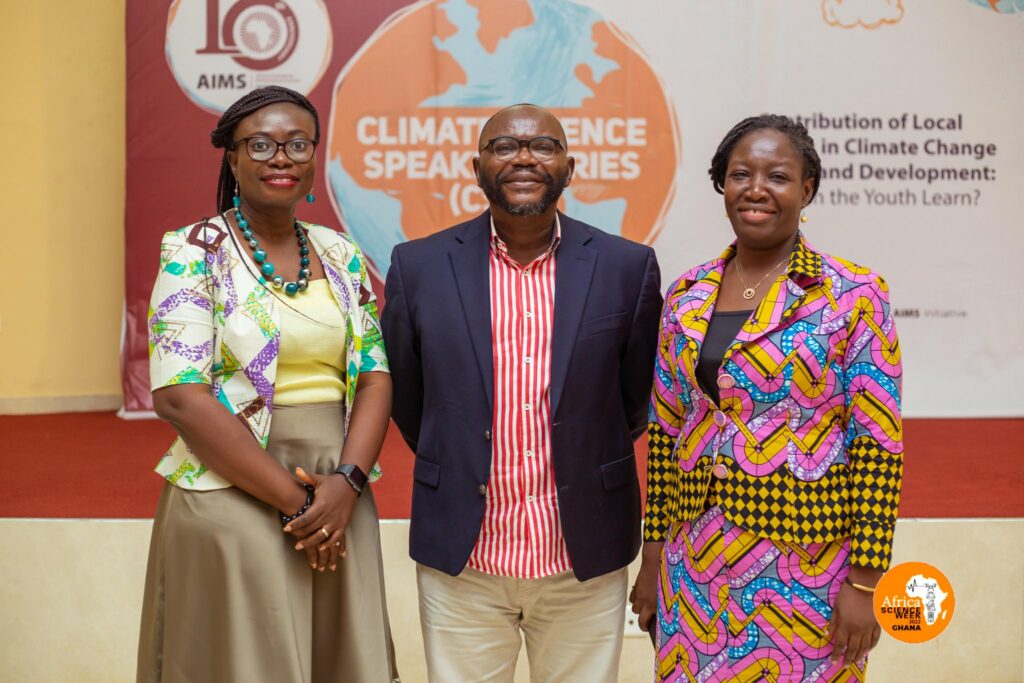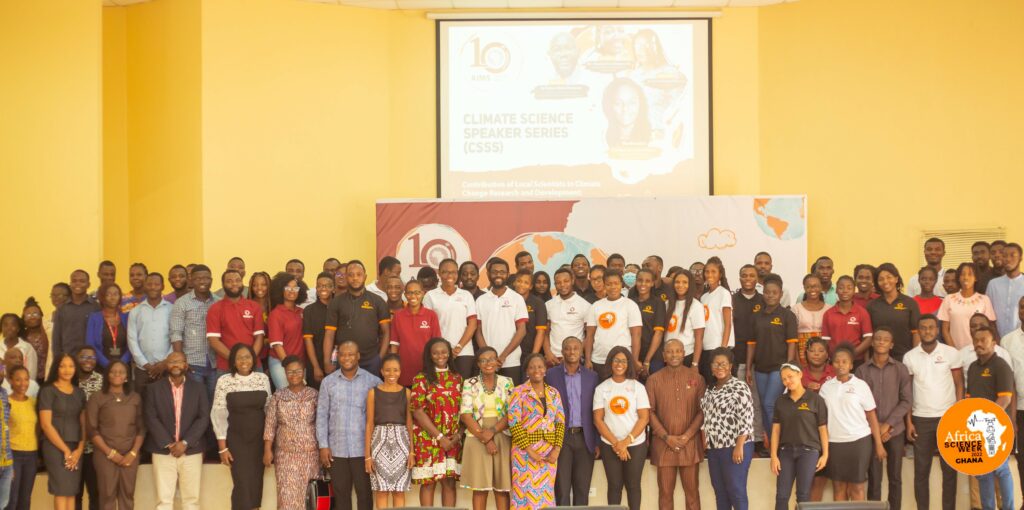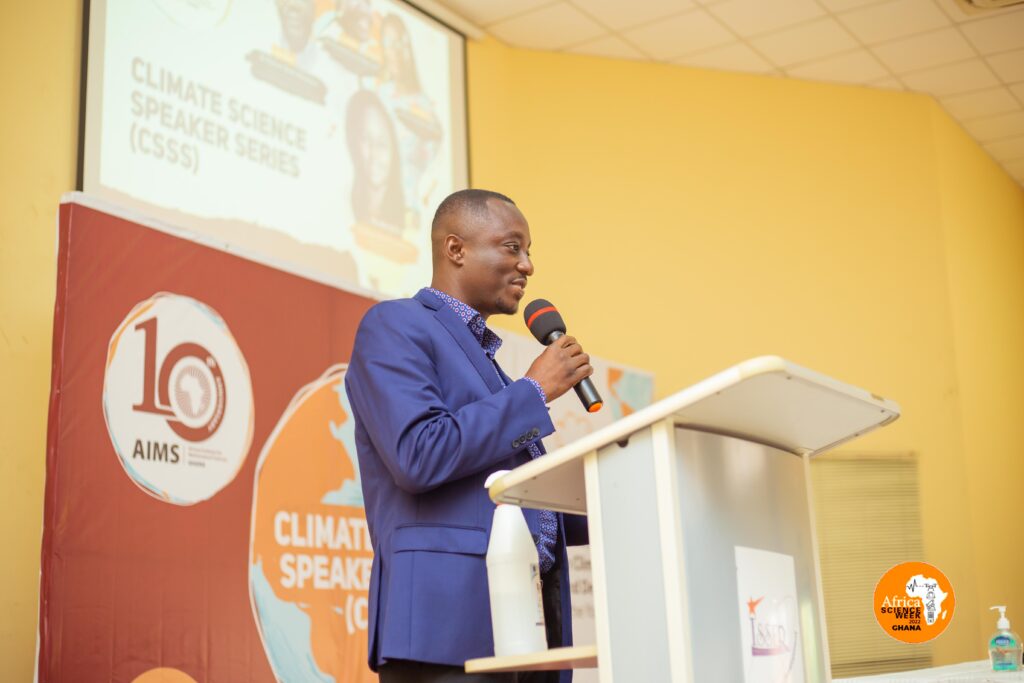The Centre organised a 3rd Edition of the Climate Science Speaker Series (CSSS) 2022 at the ISSER Conference Hall, University of Ghana, Legon on Thursday, 19th May. Significantly, this year’s CSSS was organised during the Next Einstein Forum’s (NEF) African Science Week 2022, focusing on celebrating the contribution of African researchers toward the construction of the world’s scientific heritage.
Aiming to promote a gender lens in climate science research as well as increase women’s participation in climate science, especially targeting youth, this year’s CSSS was themed, “The contribution of local scientists in climate change research and development: What can the youth learn?” Welcoming participants, NEF Ambassador Justina Onumah stressed the importance of the twin celebrations and the need to celebrate scientists within the fields of research and development.
In a remark, the Center President Dr. Prince K. Osei highlighted the historical importance of the CSSS, the contribution of AIMS towards Africa’s development and the AIMS Ghana @10 celebrations this year. “Over the decade, 400 individuals (made up of 365 Regular Masters and 35 African Master’s in Machine intelligence) with 33 percent being females from 27 African countries have benefitted from the training at AIMS Ghana,” he noted. “Let me use this opportunity to invite you all to our 10th-anniversary celebrations. AIMS will be organising various events including its Alumni Homecoming STEM Impact Symposium from 23 to 24th June; Grand Graduation on 25th June and a Public Lecture in August 2022,” he added.
Addressing the attendees, Dr. Portia Adade Williams of the Center of Science and Technology Institute (CSIR), said Africa needs to improve on its climate science research and suggested an integrated approach toward vulnerability and adaptation assessments.
She posited that the youth have a crucial role to play in creating awareness about climate change. “We all need to do something. Africa and Ghana have good youth growth. You can reduce your carbon footprint and contribute to raising climate awareness and climate literacy. The youth can volunteer to get youth concerns heard and create projects to reduce the impact of climate change in your community. What can we do before COP27?” she asked.
In his presentation, Dr. Robert Manteaw, Center for Climate Change and Sustainability studies spoke on ‘Addressing Data Poverty for Climate Informed Decision-Making. An opportunity for young scientists.’ He expressed concern about the lack of climate data and the inability to use data for climate change analysis as a major constraint in Ghana and Africa. “Old ways of doing things through historical trends or guessing cannot be relied upon. We need timely and reliable data to manage climate risk, make predictive decisions, and proactive interventions.” Dr. Manteaw further suggested that there are funding, and career opportunities for the youth in climate science research.
Dr. Charity Osei Amponsah of the International Water Management Institute presented a fascinating paper that focused on, The ‘hidden’ social dynamic/s in climate action. She touched on a practical application of climate-complex social dynamics and posited that there is a hidden social scene. “We need to ask what is happening? Who is it affecting and its implications for climate action? You need to take time to research to understand exactly what is going on. That should help in policy-making. Climate change is at the center of achieving the SDGs.”
AIMS Canada Resident Researcher in Climate Change Science Prof. Nana Ama Brown Klutse, who is also an Associate Professor at the University of Ghana led the discussion session, reemphasizing the importance of raising awareness around the repercussions of climate change and how the achievement of the SDGs becomes vulnerable if climate change is not tackled.
This brought out contributions from the participants made up of academia, students, media, and climate-action activists. The discussions focused on how individual actions can help mitigate the effects of climate change and the opportunities available for the youth.
For instance, one young student suggested a set of questions on climate science and climate change be added to the National Science and Maths Quiz competition. Interestingly, the national quiz mistress, Prof. Elsie Effah Kaufmann, Incoming-Dean of the School of Engineering Sciences, University of Ghana was present at the event. The event was attended by the academia, students of AIMS Ghana, the University of Ghana, Legon and other academic institutions, as well as science enthusiasts and the media.



